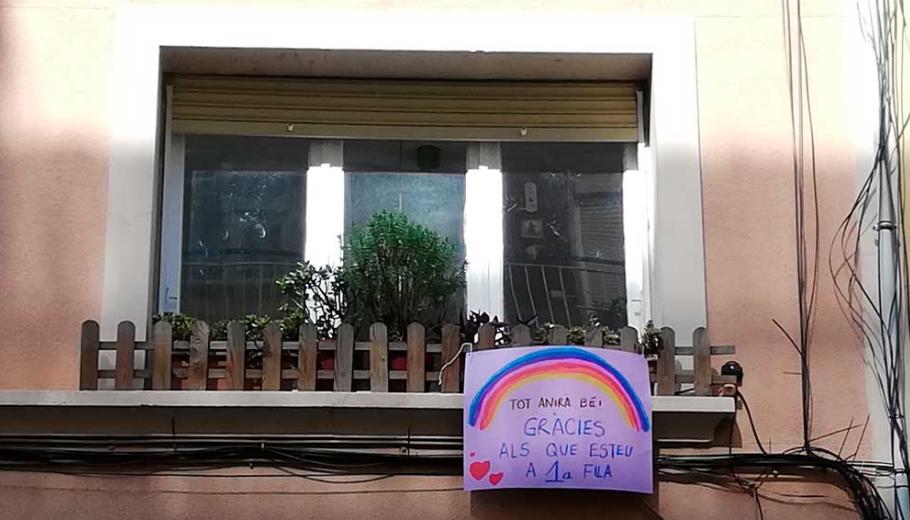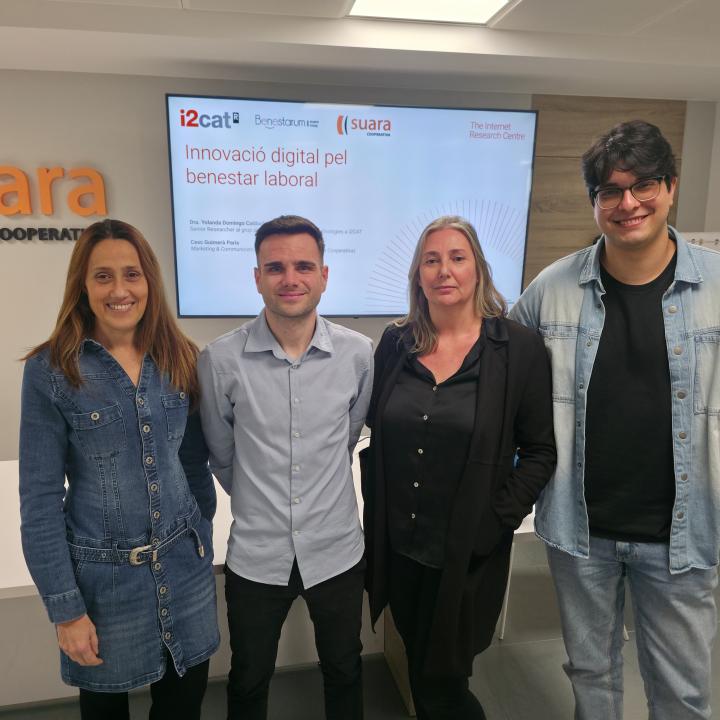When I went out to go shopping I saw this simple sign hanging in the window near my street, a poster that said: "Everything will be fine, thanks to those who are in the front row". A short and forceful message that has been on my mind all morning. I applaud these initiatives because they want to convey many things beyond words.
I would like to comment on the second part, the thanks to those who are in the front row, especially those of you who work in the third sector, who are not often spoken about. The first question I ask is what does it mean to be in the front row or on the front line? We understand that it has nothing to do with social status, nor with a political position, nor with power, nor with money, nor with appearing in the media.
Let us note that these days it has been decreed that one can only go out to work to perform essential services, and precisely these types of services require being in the front line and the vast majority of them have to do with caring, wherever it may be, which is one of the most important acts and tasks in the world.
And essential are the people who care for others. Most of them are women; there are also men, far fewer. And their professions are not always well valued, they are jobs that sometimes suffer the game of commoditization, totally unprotected from resources, in evidence these days ... Politically weakened professions, with conditions and agreements always downward that often lead to the third sector groups to have to ask like beggars always (which would not be necessary) to prevent people who care not slowly impoverish and become even more invisible to a part of society.
I am very surprised that now, because of the situation, we see caregivers as indispensable. Before they were there too, but our view was different, now all of us are at risk and whether we express it or not we feel a certain fear.
It surprises me that many companies these days send letters and e-mails of thanks to their workers, because they are in the front row. They used to be there too, didn't they? I believe that recognition of those who care should be a constant attitude in companies and in the rest of society.
We will have to review very well how the criteria of caring ethics are applied, understanding that this theory seeks the good for the people who care and those who are cared for. Because all of us know that the experience of caring will accompany us all our lives without distinction and in all stages of life.
We have a whole group of professionals who are the ones who today, in the face of this global pandemic, are on the front line without taking a step back, because they know very well what their vocation and their job is and now it is their turn to care for the most vulnerable people because of the damn Covid-19 virus.
Everything will be fine! Of course it will! Because they, our colleagues, are at the front. And being in the front row means, above all, getting out of ourselves when uncertainty surrounds us, chasing away the fear of contagion, because we know that there are others who need us, either because they are fragile people at home, because they live in a shelter, because they are children and young people living in a center, because they are dependent elderly people, because they are people with disabilities, because they are in the hospital, because they are in palliative care, in the ICU, because they are in prison and we could extend this list to infinity ...
When we take a look back, we realize that being on the front line means taking risks and knowing that the lives of others are important to us, it requires a few natural skills: knowing how to listen, encourage, comfort, support, care, serve, empathize, love... In short, to be in solidarity with human pain and take sides.
Being on the front line requires attitudes and values that are priceless, because they are invaluable! And as the days go by we realize that we need them to take care of us because without them, we feel very weak, we get sick, we feel orphaned and unprotected and we want to have someone by our side. We want to hear what is irreplaceable in the most vulnerable moments of our lives: the look, the touch, the voice and the tenderness of another human being.
Hopefully, when everything has passed, our gaze can change, looking at caregivers in a different way and there will be a recognition of them, that the applause of these days will not be erased.
Hopefully we can ask ourselves, as if everything were new, what is the place they should have in society and what are the social, political and labor changes they are asking for. Since they are the ones who carry out the essential services.
It is not necessary to relive any virus to open your eyes, really!
Take care and above all keep hope!
From Suara Cooperativa we want to accompany you in this complex stage: from the Suara at home service you can count on free sessions of psychology, coaching and physiotherapy. We are waiting for you!
Miquel Moré. Partner of Suara Cooperative




